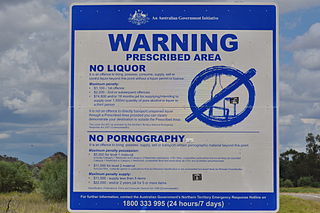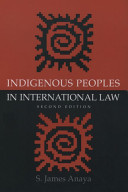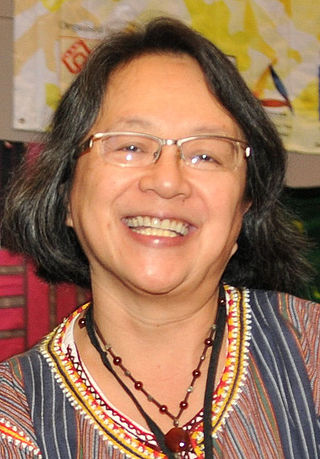Awas Tingni is an Indigenous Mayangna community of some 2,400 members on the Miskito Coast of Nicaragua, in the municipality of Waspam in the North Caribbean Coast Autonomous Region. Awas Tingni is located near the junction of the Rio Wawa and the river Awas Tingni in a densely forested area. In Mayagna, Awas Tingni means "Pine River" and denotes both the town and the river by which it is situated. Awas Tingni was named due to the large pine forest in the area, similar to the pine barrens of the mid-Atlantic United States.

Juan E. Méndez is an Argentine lawyer, former United Nations Special Rapporteur on Torture and Other Cruel, Inhuman or Degrading Treatment or Punishment, and a human rights activist known for his work on behalf of political prisoners.

Rodolfo Stavenhagen was a German-born Mexican sociologist and anthropologist who specialized in the study of human rights and the political relations between indigenous peoples and states. He was a professor-researcher at El Colegio de México. In 2001 he was appointed by the United Nations Commission on Human Rights the first United Nations Special Rapporteur on the situation of the human rights and fundamental freedoms of indigenous people through Resolution 2001/57. His mandate expired 30 April 2008. He was succeeded by Prof S. James Anaya of the University of Arizona.

Claudio Mauricio Grossman Guiloff is a lawyer and law professor. From 1995 until the summer of 2016, he served as dean of the Washington College of Law of American University in Washington, D.C. He continues to teach at the Washington College of Law and serve as Dean Emeritus.

The University of Colorado Law School is one of the professional graduate schools within the University of Colorado System. It is a public law school, with more than 500 students attending and working toward a Juris Doctor or Master of Studies in Law. The Wolf Law Building is located in Boulder, Colorado, and is sited on the south side of the University of Colorado at Boulder campus. The law school houses the William A. Wise Law Library, which is a regional archive for federal government materials and is open to the public. United States Supreme Court Justice Wiley Blount Rutledge graduated from the University of Colorado Law School in 1922.

Philip Geoffrey Alston is an Australian international law scholar and human rights practitioner. He is John Norton Pomeroy Professor of Law at New York University School of Law, and co-chair of the law school's Center for Human Rights and Global Justice. In human rights law, Alston has held a range of senior UN appointments for over two decades, including United Nations Special Rapporteur on extrajudicial, summary or arbitrary executions, a position he held from August 2004 to July 2010, and UN Special Rapporteur on extreme poverty and human rights from 2014-2020.
David Harding Getches was dean and Raphael J. Moses Professor of Natural Resources Law at the University of Colorado Law School in Boulder, Colorado. He taught and wrote on water law, public land law, environmental law, and Indian law.

The Northern Territory National Emergency Response, also known as "The Intervention" or the Northern Territory Intervention, and sometimes the abbreviation "NTER" was a package of measures enforced by legislation affecting Indigenous Australians in the Northern Territory (NT) of Australia, which lasted from 2007 until 2012. The measures included restrictions on the consumption of alcohol and pornography, changes to welfare payments, and changes to the delivery and management of education, employment and health services in the Territory.
Indigenous rights are those rights that exist in recognition of the specific condition of indigenous peoples. This includes not only the most basic human rights of physical survival and integrity, but also the rights over their land, language, religion, and other elements of cultural heritage that are a part of their existence and identity as a people. This can be used as an expression for advocacy of social organizations, or form a part of the national law in establishing the relation between a government and the right of self-determination among its indigenous people, or in international law as a protection against violation of indigenous rights by actions of governments or groups of private interests.
Robert A. Williams Jr. is an American lawyer, author, and legal scholar. He works in the fields of federal Indian law, international law, indigenous peoples' rights, critical race and post-colonial theory. Williams teaches at the University of Arizona's James E. Rogers College of Law, serving as Regents Professor, E. Thomas Sullivan Professor of Law and Faculty Chair of the Indigenous Peoples Law and Policy Program.
ArizonaNativeNet is the first online virtual university designed for use by Native American communities in the United States and Native Nations around the world.
The James E. Rogers College of Law at the University of Arizona has created an academic center for the study of American Indian and indigenous peoples law, policy, and human rights. The Indigenous Peoples Law and Policy (IPLP) Program furthers the research, training, and advocacy of Indian law and international law of indigenous peoples.

Martin Scheinin is an international law scholar who served as the first United Nations Special Rapporteur on human rights and counter-terrorism in 2005–2011. He was selected for this position after serving for eight years (1997–2004) as member of the United Nations Human Rights Committee, the independent expert body monitoring states' compliance with the International Covenant on Civil and Political Rights. While on the committee, he was known as a defendant of the rights of minorities and indigenous peoples and opponent of capital punishment, as well as the drafter of the committee's General Comment No. 29 on states of emergency.

Indigenous Peoples in International Law (ISBN 0-19517-350-3) is a book written by James Anaya. According to the author, "the central contention of this book is that international law, although once an instrument of colonialism, has developed and continues to develop, however grudgingly or imperfectly, to support indigenous peoples’ demands".

Our Generation is a 2010 Australian documentary film about the struggle of Aboriginal Australians in the Northern Territory to retain their land, culture and freedom.

The Recognition of Native American sacred sites in the United States could be described as "specific, discrete, narrowly delineated location on Federal land that is identified by an Indian tribe, or Indian individual determined to be an appropriately authoritative representative of an Indian religion, as sacred by virtue of its established religious significance to, or ceremonial use by, an Indian religion". The sacred places are believed to "have their own 'spiritual properties and significance'". Ultimately, Indigenous peoples who practice their religion at a particular site, they hold a special and sacred attachment to that land sacred land.

Victoria Tauli-Corpuz is a Filipino development consultant and an international indigenous activist of Kankana-ey Igorot ethnicity. From 2014 to 2020, she served as the third United Nations Special Rapporteur on the Rights of Indigenous Peoples.
Siegfried Wiessner is a Professor of Law and the Founder and Director of St. Thomas University's Graduate Program in Intercultural Human Rights in Miami, Florida. He holds a law degree (1977) as well as a Dr. iur. (1989) from the University of Tübingen, Germany, and an LL.M. from the Yale Law School (1982). In 1986, he was elected member of the International Institute of Space Law. He is the Editor-in-Chief of Martinus Nijhoff's Studies in Intercultural Human Rights. From 1997 to 2000, he was a lecturer at the UN/UNITAR International Law Fellowship Program. In October 2009 and November 2010, he served as Visiting Professor of Law at the City University of Hong Kong. In fall 2009, he was a Fernand Braudel Senior Fellow at the European University Institute in Florence, Italy. From 2007 to 2010, he was a member of the Executive Council of The American Society of International Law. From 2008 to 2012, he served as the Chair of the International Law Association's Committee on the Rights of Indigenous Peoples.
Cristina Coc is a leader of the Maya community in southern Belize. She has served as co-spokesperson for the Maya Leadership Alliance and is the founder and executive director of the advocacy organization, the Julian Cho Society. In 2015, she and the MLA were awarded the Equator Prize for their efforts in protecting indigenous rights.

José Francisco Calí Tzay is a Guatemalan attorney and diplomat, and the UN Human Rights Council Special Rapporteur on the Rights of Indigenous Peoples since 2020.












